
The Timeless Majesty of Azraq Castle
Azraq Castle, also known as Qasr al-Azraq, is a historic fortress located in the heart of Jordan's eastern desert. This monumental structure has stood the test of time, originally built by the Romans and later expanded by the Umayyads. Its strategic location made it a vital military outpost throughout history, serving various empires and even Lawrence of Arabia during the Arab Revolt in World War I. The castle's unique black basalt stone construction sets it apart from other desert castles in Jordan. As you wander through its halls and courtyards, you'll be transported back in time, imagining the lives of soldiers and leaders who once walked these same pathways. The large central courtyard, impressive archways, and well-preserved inscriptions offer a glimpse into the architectural prowess of its builders. Surrounding the castle, the Azraq Oasis provides a stark contrast to the arid desert landscape. This lush area is a haven for migratory birds and offers a serene setting for reflection after exploring the castle. Whether you're a history enthusiast, an architecture lover, or simply seeking a unique adventure, Azraq Castle promises an unforgettable experience.
Local tips in Azraq Castle
- Visit early in the morning to avoid the midday heat and to have a more peaceful experience.
- Bring a water bottle and wear comfortable walking shoes, as the terrain can be uneven.
- Combine your visit with a trip to the nearby Azraq Wetland Reserve to see the local wildlife.
- Hire a local guide to gain deeper insights into the castle's fascinating history and significance.
- Check the weather forecast before your visit, as the desert climate can be unpredictable.
The Timeless Majesty of Azraq Castle
Azraq Castle, also known as Qasr al-Azraq, is a historic fortress located in the heart of Jordan's eastern desert. This monumental structure has stood the test of time, originally built by the Romans and later expanded by the Umayyads. Its strategic location made it a vital military outpost throughout history, serving various empires and even Lawrence of Arabia during the Arab Revolt in World War I. The castle's unique black basalt stone construction sets it apart from other desert castles in Jordan. As you wander through its halls and courtyards, you'll be transported back in time, imagining the lives of soldiers and leaders who once walked these same pathways. The large central courtyard, impressive archways, and well-preserved inscriptions offer a glimpse into the architectural prowess of its builders. Surrounding the castle, the Azraq Oasis provides a stark contrast to the arid desert landscape. This lush area is a haven for migratory birds and offers a serene setting for reflection after exploring the castle. Whether you're a history enthusiast, an architecture lover, or simply seeking a unique adventure, Azraq Castle promises an unforgettable experience.
When is the best time to go to Azraq Castle?
Iconic landmarks you can’t miss
Petra
Explore Petra, the awe-inspiring Rose City of Jordan, where ancient architecture and stunning landscapes blend into a timeless adventure.
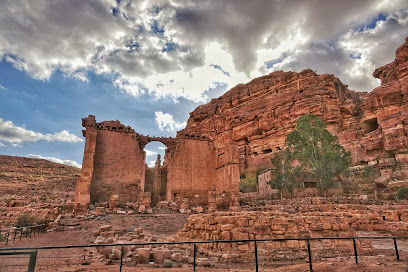
Wadi Rum Protected Area
Discover the stunning landscapes and rich culture of Wadi Rum Protected Area, a desert paradise in Jordan, perfect for adventurers and nature lovers.
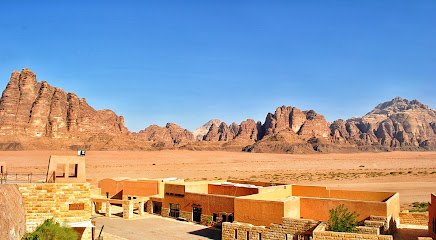
Ajloun Castle
Discover the 12th-century Ajloun Castle, a stunning historical site offering breathtaking views and a glimpse into Jordan's rich past.
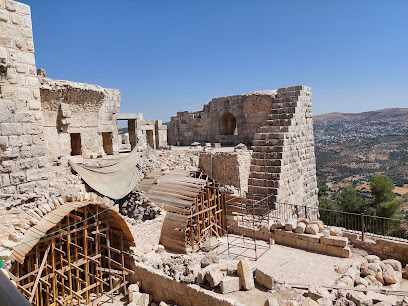
Kerak Castle
Discover the historic grandeur of Kerak Castle, a stunning fortress that offers breathtaking views and a rich glimpse into Jordan's past.
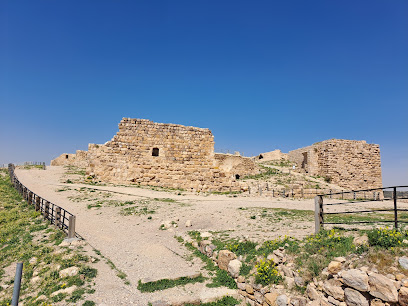
Al-Azraq Castle
Discover the rich history of Al-Azraq Castle, a black basalt fortress in Jordan that echoes tales of ancient battles and cultural heritage.
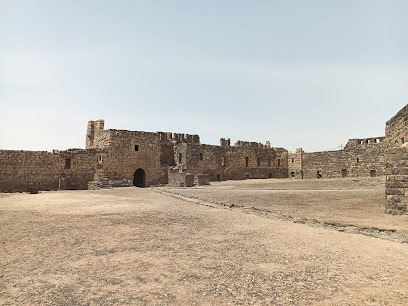
Al-Siq
Explore the stunning Al-Siq, the enchanting gorge that leads to Petra's majestic Treasury, showcasing nature and history at their finest.
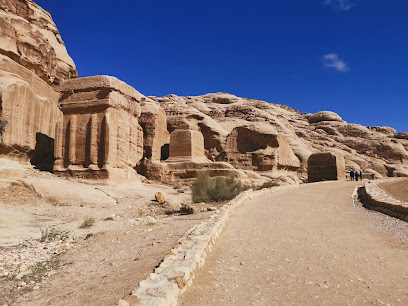
Wadi Mujib
Discover the breathtaking landscapes and thrilling adventures of Wadi Mujib, a national reserve in Jordan perfect for nature lovers and outdoor enthusiasts.
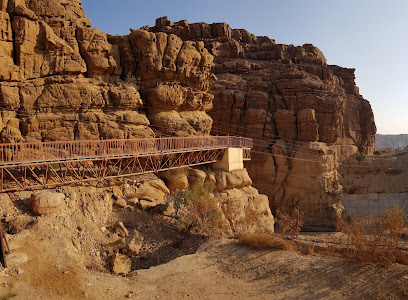
Shobak Castle - Montreal
Discover the magnificence of Shobak Castle, a Crusader stronghold in Jordan, combining rich history with breathtaking landscapes.
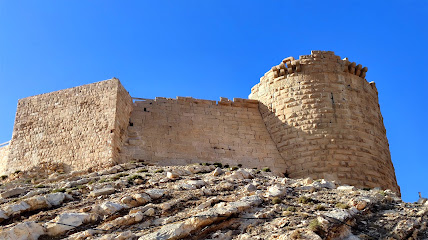
Qasr Al-Harranah
Discover the majestic Qasr Al-Harranah, a stunning historical landmark in Jordan that offers a glimpse into the rich heritage and architectural beauty of the Umayyad period.
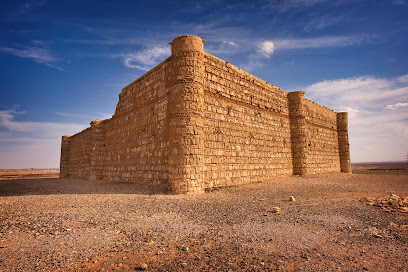
Azraq Wetlands Reserve
Discover the stunning Azraq Wetlands Reserve, a beautiful national park in Jordan, rich in wildlife and breathtaking landscapes, perfect for nature lovers and adventurers.
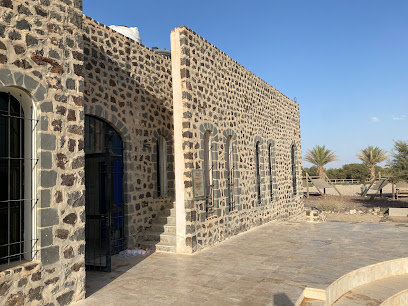
Quseir 'Amra
Experience the rich history and breathtaking frescoes of Quseir 'Amra, a UNESCO World Heritage site in the heart of Jordan.
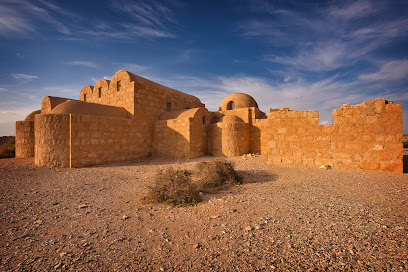
Qasr Al-Abed
Discover the grandeur of Qasr Al-Abed, a stunning Hellenic castle in Amman, Jordan, and immerse yourself in its rich history and breathtaking architecture.
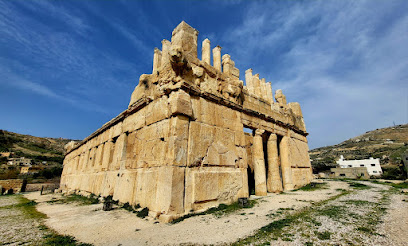
Umayyad Palace
Explore the Umayyad Palace in Amman, a historical landmark showcasing the grandeur of Jordan's rich heritage and stunning ancient architecture.
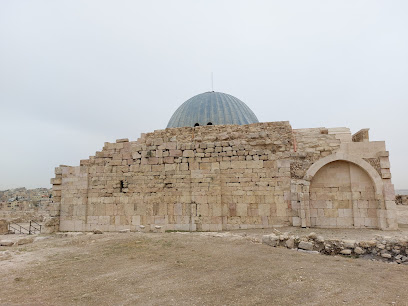
Qasr Al-Mushatta
Explore the enchanting Qasr Al-Mushatta, a historical landmark that showcases Jordan's rich heritage through its stunning architectural beauty.
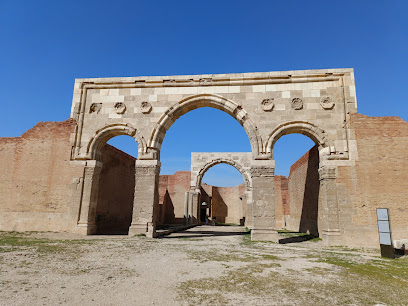
Hammam as-Sarah
Explore the captivating Hammam as-Sarah, a historical landmark in Qasr Al-Hallabat, showcasing stunning Roman architecture and rich cultural heritage.
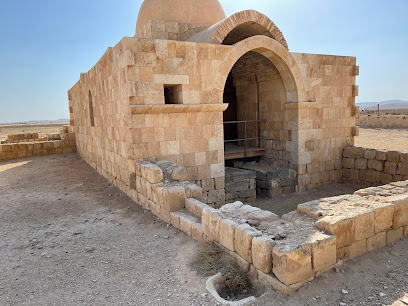
Unmissable attractions to see
Qasr Bshir
Experience the historical splendor of Qasr Bshir, an ancient castle in Jordan showcasing stunning architecture and breathtaking desert scenery.
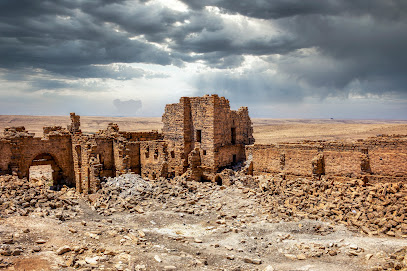
Qasr al-Burqu
Explore Qasr al-Burqu, an ancient fortress in Jordan, where history, architecture, and breathtaking desert views unite for an unforgettable experience.
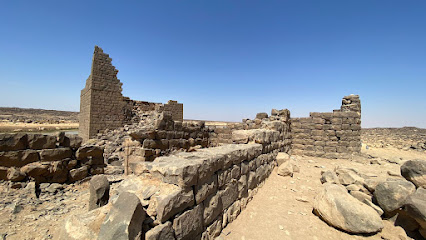
Qasr Tuba
Explore Qasr Tuba, a majestic castle in Jordan that showcases stunning architecture and rich history, offering breathtaking views and unforgettable experiences for travelers.
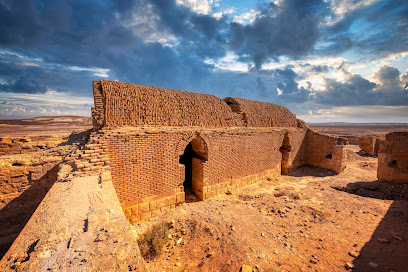
Essential places to dine
Wadi Rum Protected Area
Explore Wadi Rum Protected Area: A breathtaking desert landscape rich with history and adventure awaits every traveler.
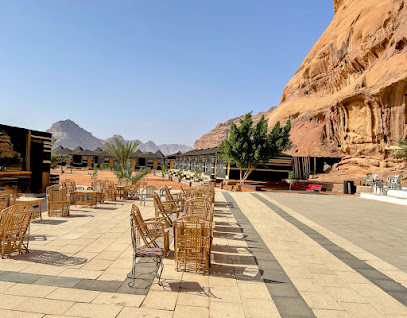
Tawaheen AlHawa
Experience authentic Jordanian cuisine at Tawaheen AlHawa, where tradition meets flavor in an enchanting setting.
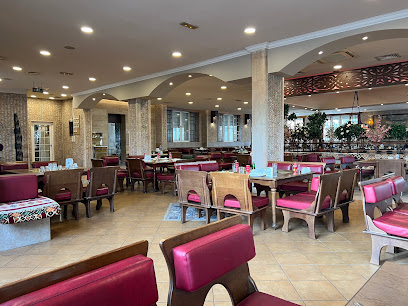
Kerak Castle
Explore Kerak Castle: A majestic fortress showcasing Jordan's rich heritage with breathtaking views and captivating historical tales.
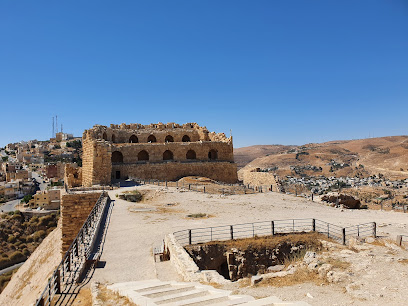
Fakhreldin Restaurant
Experience authentic Lebanese cuisine at Fakhreldin Restaurant in Amman - a family-friendly haven for food lovers.
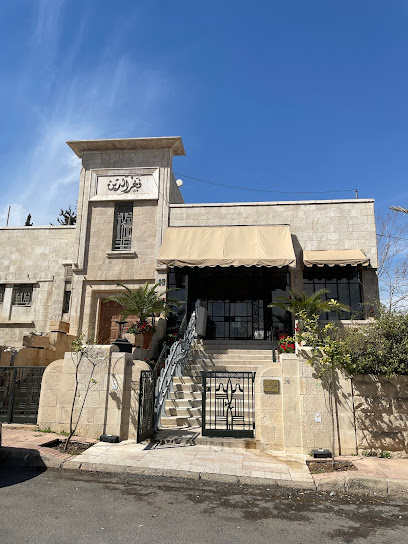
Reem AlBawadi Restaurant
Experience authentic Jordanian cuisine at Reem AlBawadi Restaurant in Amman, where tradition meets modern dining in an inviting atmosphere.
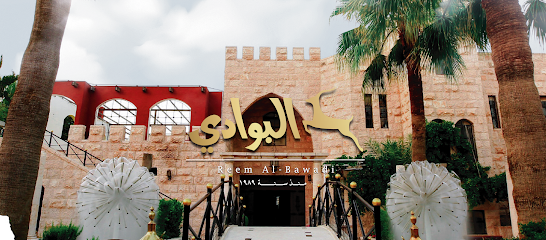
Lebanese House
Savor authentic Lebanese flavors at Lebanese House in Jerash - where fine dining meets rich tradition.
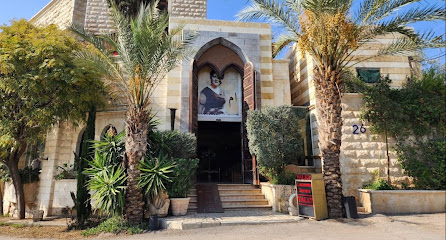
Al-Azraq Castle
Explore Al-Azraq Castle: A majestic fortress steeped in history located in Jordan's mesmerizing desert landscape.
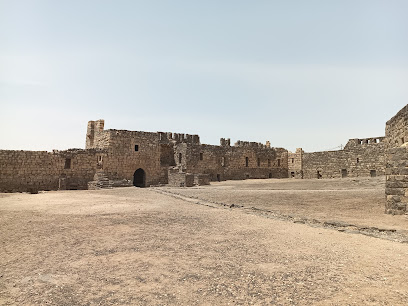
Romero Restaurant
Savor authentic Italian cuisine in Amman's cozy culinary haven at Romero Restaurant.
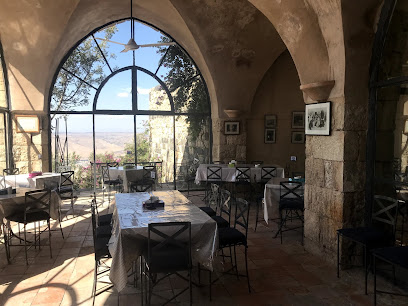
Qasr Al-Harranah
Discover Qasr Al-Harranah: A stunning historical landmark showcasing early Islamic architecture amidst Jordan's captivating desert landscape.
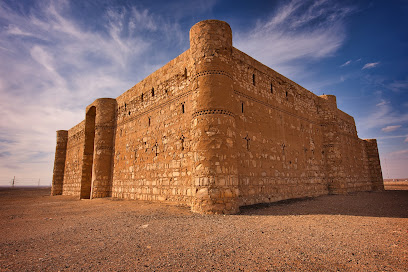
Azraq Wetlands Reserve
Explore the stunning Azraq Wetlands Reserve: a paradise for bird watchers and nature lovers in Jordan's desert landscape.
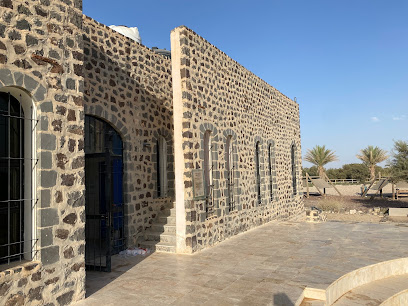
مطعم حارة جدودنا
Discover authentic Jordanian flavors at مطعم حارة جدودنا in Madaba—where every meal is a celebration of tradition and taste.
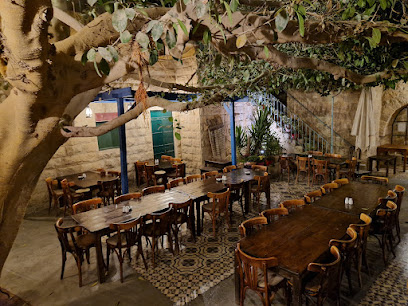
Quseir 'Amra
Discover Quseir 'Amra: A UNESCO World Heritage Site featuring exquisite frescoes and ancient architecture in the heart of Jordan.
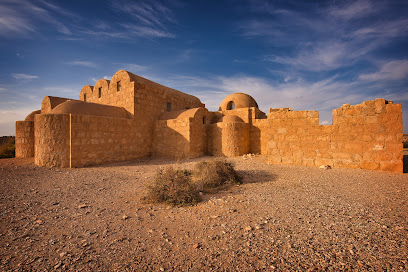
Habib Beirut
Experience authentic Lebanese cuisine at Habib Beirut in Amman - where every dish tells a story of tradition and flavor.
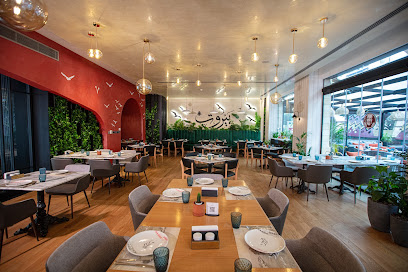
Umm Qais Rest House
Experience culinary delights at Umm Qais Rest House while enjoying stunning views of Golan Heights and ancient ruins.
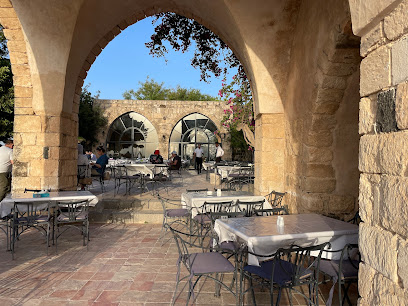
Jar Al Jabal Restaurant - مطعم جار الجبل
Discover authentic Jordanian flavors at Jar Al Jabal Restaurant with stunning views of Ajloun Castle.
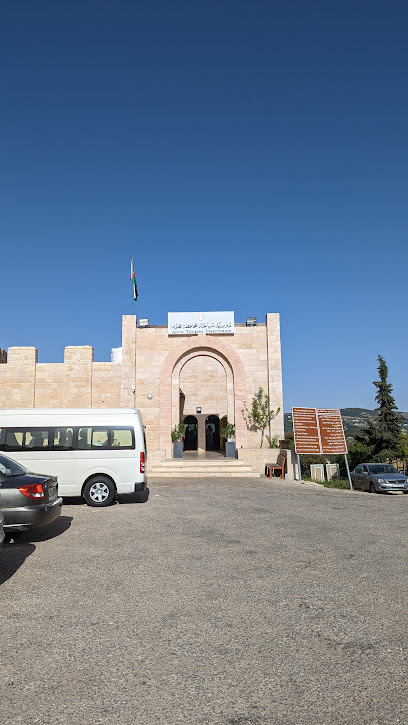
Markets, malls and hidden boutiques
City Mall
Discover the ultimate shopping experience at City Mall in Amman, where fashion, dining, and entertainment come together in a vibrant atmosphere.
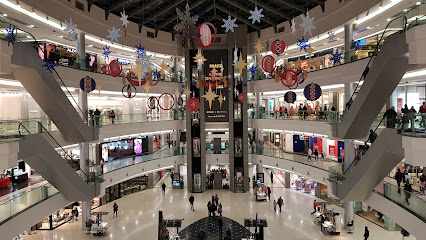
Abdali Mall
Discover Abdali Mall in Amman: A vibrant shopping and entertainment hub with diverse dining options and unique brands.
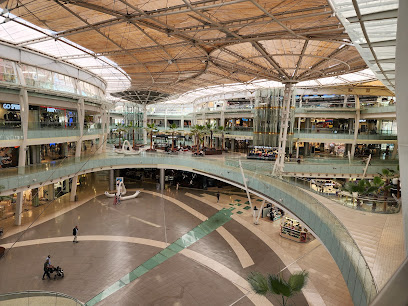
Taj Lifestyle Center
Explore the vibrant Taj Lifestyle Center in Amman, where shopping, dining, and entertainment converge for an unforgettable experience.
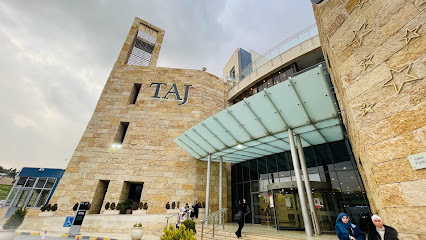
The Galleria Mall
Explore the ultimate shopping and dining experience at The Galleria Mall in Amman, where fashion meets entertainment in a stunning atmosphere.
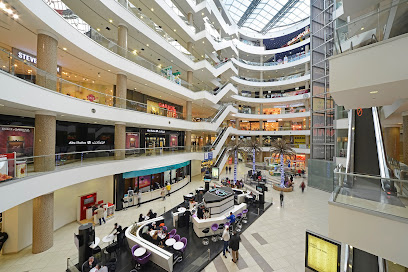
Al-Azraq Castle
Discover the historical marvel of Al-Azraq Castle in Jordan, a stunning fortress with breathtaking views and rich cultural stories waiting to be explored.
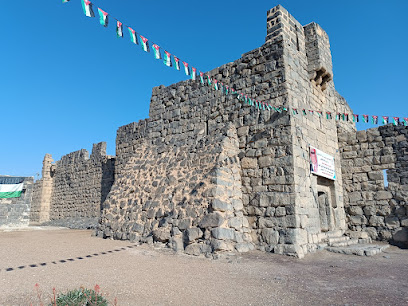
Souk Jara
Explore Souk Jara in Amman, a lively market filled with unique crafts, delicious street food, and a taste of authentic Jordanian culture.
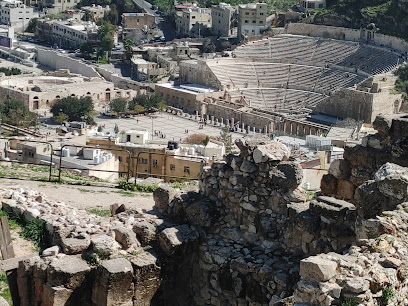
The Castle
Explore unique fashion at The Castle in Amman, where traditional Jordanian styles meet modern trends for an unforgettable shopping experience.
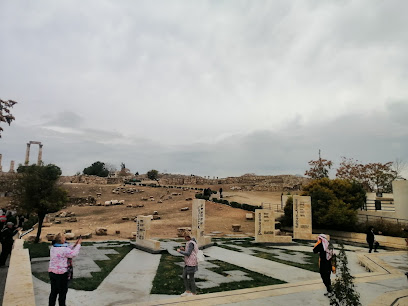
Jordan Craft Center
Explore the Jordan Craft Center in Amman, where traditional handicrafts meet modern creativity, offering unique souvenirs and cultural experiences.
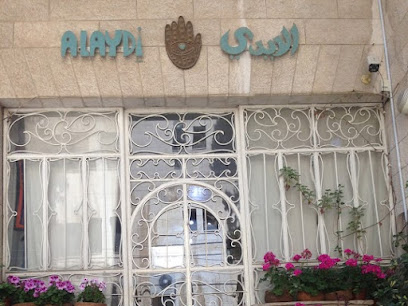
Souq Al-Sukar
Discover the authentic tastes of Jordan at Souq Al-Sukar, a vibrant fresh food market in Amman offering a feast for the senses.
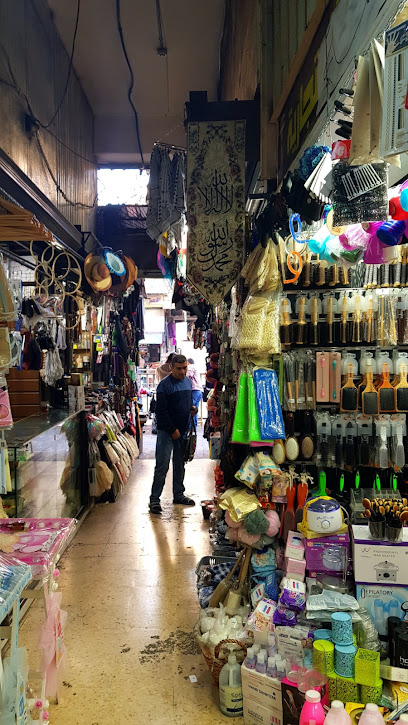
Black Iris Handicrafts
Discover unique Jordanian crafts at Black Iris Handicrafts in Naour, a vibrant shopping destination for authentic souvenirs.
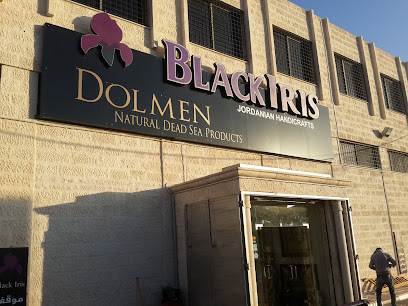
Rasas Jewelry & Design
Discover exquisite handcrafted jewelry at Rasas Jewelry & Design, the premier jewelry store in Amman, Jordan, known for quality and exceptional service.
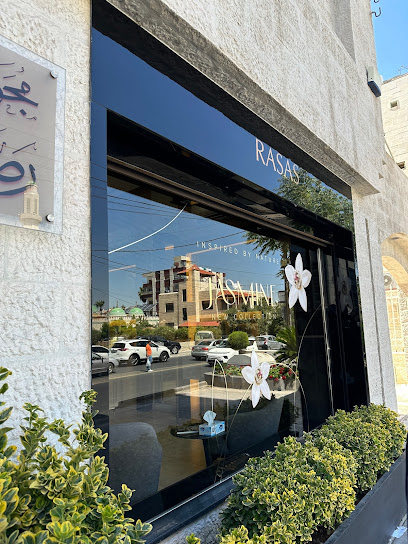
Mosaic house art & mosaics
Explore the vibrant art scene at Mosaic House in Madaba, where exquisite mosaics and unique crafts await every visitor.
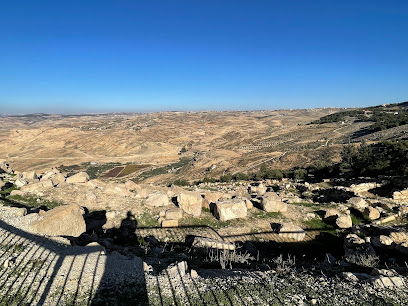
Al-Karam Qadri
Explore Al-Karam Qadri in Amman for a unique blend of local and contemporary fashion in a vibrant shopping atmosphere.
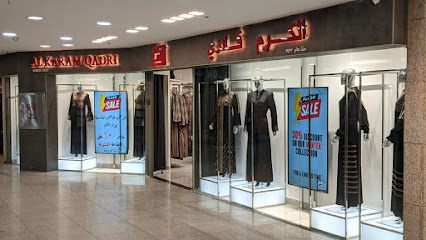
Al Karam Qadri
Explore Al Karam Qadri in Amman for a unique blend of traditional and modern clothing that embodies Jordan's vibrant culture.
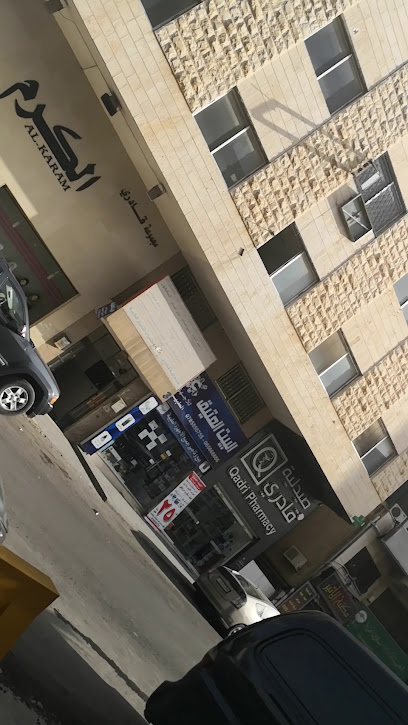
Jack’s Gift Shop
Explore Jack’s Gift Shop in Amman for unique souvenirs that capture the essence of Jordanian culture and craftsmanship.
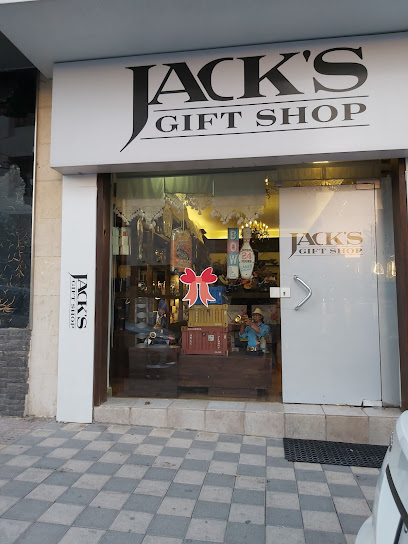
Essential bars & hidden hideouts
The Corner's Pub
Experience the vibrant atmosphere and delectable pub fare at The Corner's Pub in Amman, where locals and tourists come together.
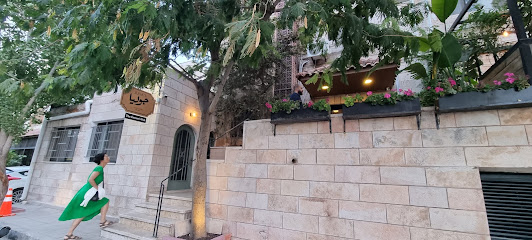
Cantaloupe Gastro Pub
Explore the vibrant culinary scene of Amman at Cantaloupe Gastro Pub, where gourmet dishes meet a lively atmosphere in the heart of the city.
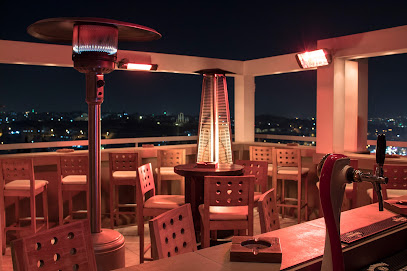
Dubliners
Discover the vibrant spirit of Ireland at Dubliners, an authentic Irish pub in Amman, serving traditional dishes and a wide selection of drinks.
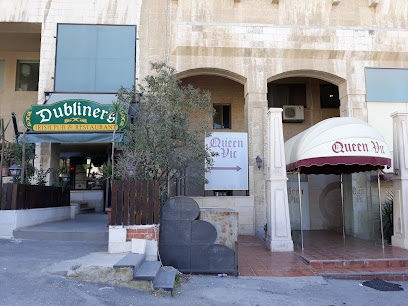
Murphy's - House of Rock
Discover the energetic vibe of Murphy's - House of Rock in Amman, where delicious food meets a lively pub atmosphere amidst beautiful gardens.
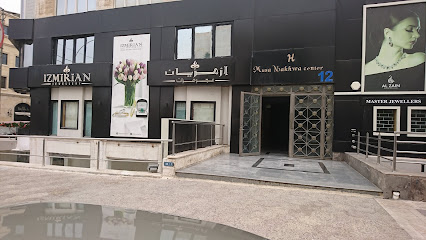
District Urban Rooftop
Discover the vibrant nightlife at District Urban Rooftop in Amman, where breathtaking views meet exquisite drinks and a lively atmosphere.
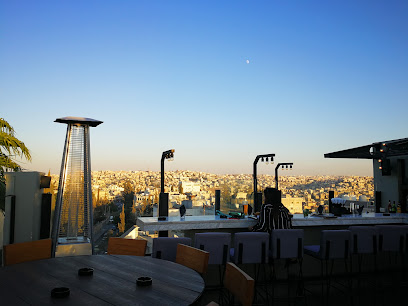
Maestro Bar and Restaurant
Discover Maestro Bar and Restaurant, a lively venue in Amman offering delicious food, an extensive drink menu, and a vibrant atmosphere perfect for relaxation.
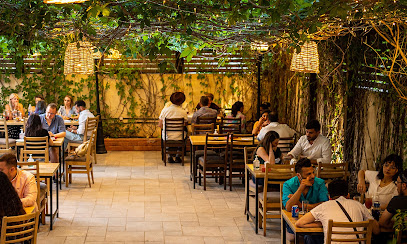
Kegs House of Ale
Experience the lively spirit of Amman at Kegs House of Ale, where great ales and delicious food await in a vibrant setting.
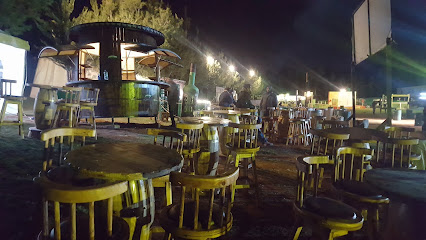
Black Iris Rooftop
Discover the vibrant nightlife of Amman at Black Iris Rooftop, where stunning views meet excellent drinks and unforgettable experiences.
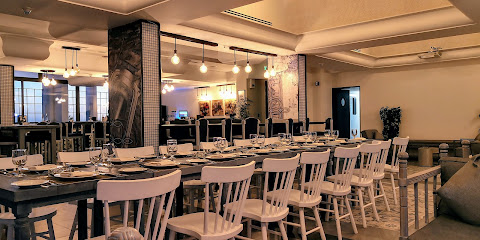
C.LING Rooftop
Discover the vibrant atmosphere of C.LING Rooftop, a top pub in Amman offering stunning views, delightful cuisine, and a lively ambiance for all visitors.
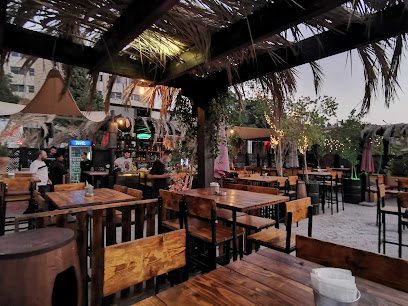
Sekrab
Discover the vibrant fusion of local flavors and contemporary dining at Sekrab, a must-visit restaurant and lounge in Amman.
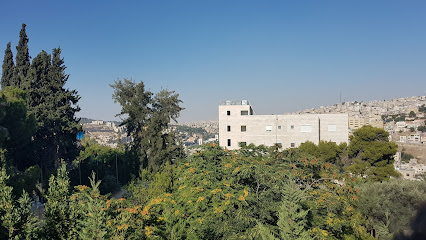
Uncle Sam Pub 1975
Experience the lively atmosphere of Uncle Sam Pub in Amman, a must-visit spot for affordable drinks, great food, and unforgettable nights out.
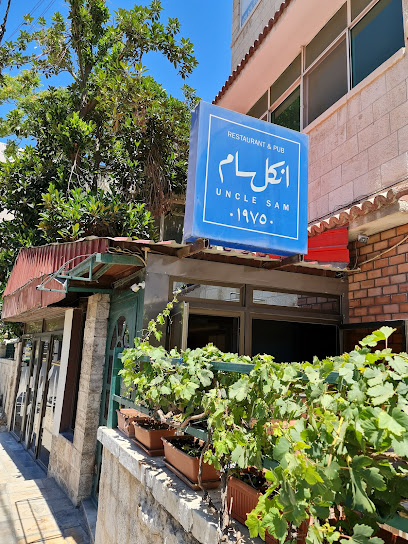
U Roof Lounge
Discover the vibrant nightlife of Amman at U Roof Lounge, where stunning views and exquisite cocktails create a memorable experience.
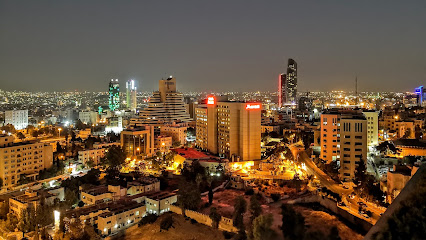
Ghoroub Sunset Bar & Lounge
Experience breathtaking sunsets and sophisticated lounging at Ghoroub Sunset Bar & Lounge in Amman, Jordan.
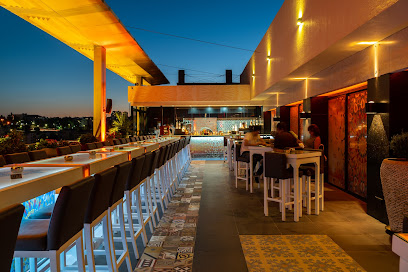
The Cellar
Experience the vibrant nightlife of Amman at The Cellar, where eclectic charm meets live music and a diverse drink selection.
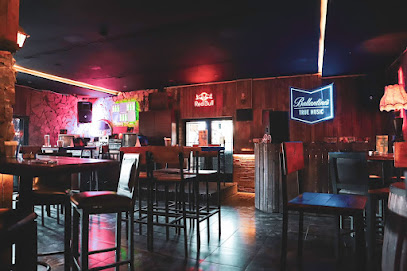
Local Phrases about Azraq Castle
-
- HelloMarhaba
[Mar-ha-ba] - GoodbyeMa'a as-salama
[Ma-a as-sa-la-ma] - YesNa'am
[Na-am] - NoLa
[La] - Please/You're welcomeMin fadlik
[Min fad-lik] - Thank youShukran
[Shuk-ran] - Excuse me/SorryAfwan
[Af-wan] - How are you?Kif halak?
[Kif ha-lak] - Fine. And you?Mni7. W inta?
[Mni7. W in-ta] - Do you speak English?Bet7ki englizi?
[Bet-hki en-gli-zi] - I don't understandMa fahimt
[Ma fa-himt]
- HelloMarhaba
-
- I'd like to see the menu, pleaseBaddi ara il menu, min fadlik
[Bad-di a-ra il me-nu, min fad-lik] - I don't eat meatMa bakkol lahme
[Ma bak-kol lah-me] - Cheers!Saha
[Sa-ha] - I would like to pay, pleaseBaddi adfa3, min fadlik
[Bad-di ad-fa3, min fad-lik]
- I'd like to see the menu, pleaseBaddi ara il menu, min fadlik
-
- Help!Musa3ada!
[Mu-sa3a-da] - Go away!Rou7!
[Rou7] - Call the Police!Id3u il bullis!
[Id-3u il bul-lis] - Call a doctor!Id3u il tabib!
[Id-3u il ta-bib] - I'm lostGhawweyt
[Gha-wweyt] - I'm illAna mareed
[Ana ma-reed]
- Help!Musa3ada!
-
- I'd like to buy...Baddi ashtri...
[Bad-di ash-ti...] - I'm just lookingAna bas bafham
[Ana bas ba-fham] - How much is it?Kam hada?
[Kam ha-da] - That's too expensiveHada ghali kteer
[Ha-da gha-li kteer] - Can you lower the price?Mumkin tsheil el si2r?
[Mum-kin t-sheil el si2r]
- I'd like to buy...Baddi ashtri...
-
- What time is it?Kam el sa3a?
[Kam el sa3a] - It's one o'clockSaa wahda
[Saa wah-da] - Half past (10)Nisf il 3ashra
[Nisf il 3a-shra] - MorningSaba7
[Sa-ba7] - AfternoonDuhur
[Du-hur] - Evening3asha
[3a-sha] - YesterdayAms
[Ams] - TodayLyom
[Lyom] - TomorrowGhadan
[Gha-dan] - 1wahid
[wa-hid] - 2ithnain
[ith-nain] - 3thalatha
[tha-la-tha] - 4arba3a
[ar-ba3a] - 5khamsa
[kham-sa] - 6sitta
[sit-ta] - 7saba3a
[sa-ba3a] - 8thamania
[tha-ma-ni-a] - 9tis3a
[tis-3a] - 10ashra
[ash-ra]
- What time is it?Kam el sa3a?
-
- Where's a/the...?Wayn il...
[Wayn il...] - What's the address?Shu el 3enwan?
[Shu el 3en-wan] - Can you show me (on the map)?Mumkin teshereni (3al kharita)?
[Mum-kin te-she-re-ni (3al kha-ri-ta)] - When's the next (bus)?Emsafer el talet?
[Em-sa-fer el ta-let] - A ticket (to ....)Tikat (ila ....)
[Ti-kat (ila ....)]
- Where's a/the...?Wayn il...
History of Azraq Castle
-
Azraq Castle, also known as Qasr al-Azraq, is located in the heart of the Azraq Oasis in Jordan. Its origins date back to the Roman period, around the 3rd century AD. The strategic location of the castle made it a crucial military and trade hub. The Romans initially built the fortress to control the trade routes and protect the oasis, which was a vital water source in the arid desert region.
-
After the decline of the Roman Empire, the Byzantines took over the fortress. They maintained and fortified the structure to secure their eastern frontiers. With the rise of the Umayyad Caliphate in the 7th century, the castle saw further modifications. The Umayyads, known for their extensive building projects, added Islamic architectural elements to the fortress, blending Roman and Islamic styles.
-
During the 12th century, the castle came under the control of the Ayyubids, who were led by the famous Muslim leader Salah ad-Din (Saladin). The Ayyubids refurbished the castle to strengthen their defenses against Crusader invasions. Later, in the 13th century, the Mamluks, renowned for their military prowess and architectural achievements, further enhanced the fortress. They built new structures within the castle walls and made it an administrative center.
-
In the early 16th century, the Ottoman Empire incorporated Azraq Castle into its vast territories. The Ottomans used the fortress as a military garrison to maintain control over the region. During World War I, the castle gained historical significance when T.E. Lawrence, famously known as Lawrence of Arabia, used it as his military headquarters in 1917. Lawrence and his Arab forces launched several operations against the Ottoman troops from Azraq Castle, contributing to the success of the Arab Revolt.
-
Today, Azraq Castle stands as a testament to the rich history and diverse cultures that have shaped Jordan. The castle has been partially restored and is open to visitors who can explore its ancient corridors, towers, and courtyards. The site is managed by the Jordanian Department of Antiquities, which works to preserve its historical integrity. Azraq Castle continues to attract history enthusiasts, scholars, and travelers from around the world, offering a glimpse into the past and the region's strategic importance over the millennia.
Azraq Castle Essentials
-
Azraq Castle is located in the eastern desert of Jordan, approximately 100 kilometers east of Amman. The nearest airport is Queen Alia International Airport in Amman. From Amman, you can take a bus or rent a car to reach Azraq. The journey typically takes around 1.5 to 2 hours by road. Buses are available from the Amman North Bus Station, but for a more comfortable and flexible trip, renting a car is recommended.
-
While in Azraq, local taxis are readily available and a convenient means of transport. There are also tour operators who offer guided tours and transportation to and from the castle. Renting a car is another option and allows you to explore the surrounding areas, including the Azraq Wetland Reserve and Shaumari Wildlife Reserve, at your own pace.
-
The official currency in Jordan is the Jordanian Dinar (JOD). Credit cards are widely accepted in hotels, restaurants, and major tourist sites. However, it is advisable to carry cash for smaller establishments and local markets. ATMs are available in larger towns, but it is wise to withdraw sufficient cash in Amman before traveling to Azraq.
-
Azraq is generally a safe destination for tourists. However, it is advisable to take standard precautions such as avoiding walking alone at night in unfamiliar areas and keeping an eye on your belongings in crowded places. While crime rates targeting tourists are low, staying vigilant and aware of your surroundings is always best practice.
-
In case of emergency, dial 911 for immediate assistance. The nearest medical facilities are located in the town of Azraq, and more comprehensive medical services are available in Amman. It is recommended to have travel insurance that covers medical emergencies. Pharmacies are available in Azraq for minor health issues and over-the-counter medications.
-
Fashion: Do dress modestly, especially when visiting religious sites and rural areas. Avoid wearing revealing clothing. Religion: Do respect local customs and traditions. Always cover your head when entering mosques. Public Transport: Do be respectful and give up your seat to elderly passengers. Don't eat or drink on public transport. Greetings: Do greet people with a handshake. A slight bow of the head is also a sign of respect. Eating & Drinking: Do try local delicacies and accept food offerings graciously. Don't refuse hospitality, as it is considered impolite.
-
To experience Azraq Castle like a local, visit early in the morning to avoid the midday heat and enjoy a quieter atmosphere. Engage with local guides who can provide in-depth historical context and fascinating stories about the castle. Don't miss visiting the nearby Azraq Wetland Reserve, which offers a unique contrast to the arid surroundings and is home to various bird species. For a taste of local cuisine, try a traditional Bedouin meal at one of the local eateries.
Nearby Cities to Azraq Castle
-
Things To Do in Mafraq
-
Things To Do in Amman
-
Things To Do in Jerash
-
Things To Do in Madaba
-
Things To Do in Salt
-
Things To Do in Irbid
-
Things To Do in Kerak
-
Things To Do in Dead Sea
-
Things To Do in Umm Qais
-
Things To Do in Beit She'an
-
Things To Do in Ein Gedi
-
Things To Do in Masada
-
Things To Do in Jerusalem
-
Things To Do in Bethlehem
-
Things To Do in Tiberias








